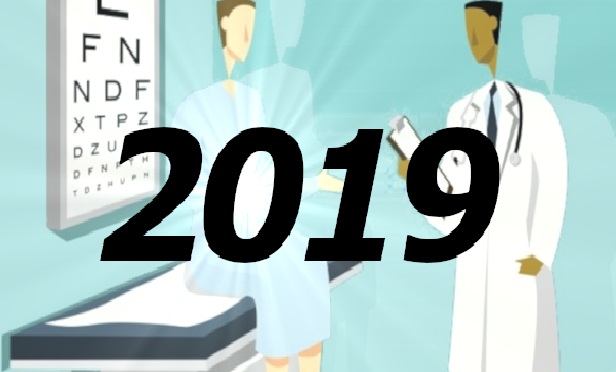 Mosthealth insurance professionals have one thought in the back oftheir minds: The best way to help clients with health insurancewould be to help people stay healthy. (Image: Thinkstock)
Mosthealth insurance professionals have one thought in the back oftheir minds: The best way to help clients with health insurancewould be to help people stay healthy. (Image: Thinkstock)
The obvious question for anyone deeply involved with majormedical insurance is, “Where's the Dramamine?”
|Federal and state policymakers continue to base individual majormedical market rules on the roll of the political dice.
|That chaos could eventually spill over into the Medicare market and group health markets.
|Assuming, for the sake of argument, that commercial healthinsurance continues to function, here are seven questions thatcould shape our health insurance reporting in the coming year.
|1. How solvent are smaller players?
Moody's, S&P and Fitch may say they carriers they rate lookfine, but most of the carriers they rate are big.
|Now that regulatory chaos has pushed many bigger players awayfrom the group health market, and completely out of the individualmarket, the remaining players tend to be smaller players withoutinsurer strength ratings from the big rating agencies.
|2. Will anyone involved with Texas v. USA litigationfigure out what's in the Affordable Care Act?
The ACA-killer suit could, for example, eliminatethe regulatory and program framework an employer needs to set upone of the new association health plan (AHP) programs orcash-for-coverage health reimbursement arrangement programs theTrump administration has developed.
|One question will be whether the parties and courts find a wayto put some kind of new market framework in place beforeeliminating the old framework.
|3, Will the stop-loss market take off?
Medical stop-loss insurance services as insurance for employers'self-insured health plans. Stop-loss arrangements protect the plansponsors against catastrophic losses.
|One obstacle to stop-loss market growth: Employers canself-insure without buying stop-loss insurance. They can simplyoffer coverage and hope for the best.
|Dan Davey, a member of the stop-loss team at Mercer, says inMercer's 2019 health benefits trends predictions that an increasein catastrophic claims could start to get employers' attention thisyear.
|“With the severity and frequency of catastrophic claims,employers will up their stop-loss insurance levels, and those thatdon't buy it now will reconsider,” Davey writes.
|Employers may also show increased interest in alternatives tostop-loss, such as single-parent captive insurers, and captiveinsurers owned by a group of employers, Davey says.
|4. How exactly will workers get paid?
ADP, the payroll company, has suggested that many employers willshift toward more flexible payroll schedules.
|Changes in payroll schedules could force benefits productissuers to update how they handle employee billing.
|5. What are plans doing about behavioral healthbenefits?
The National Business Group on Health (NGBH) has put “emotionalmoves to the forefront” on its list of 2019 health benefitstrends.
|Members of the NBGH, which tends to represent largeemployers.
|Those employers are talking about finding better ways to helpplan enrollees with stress, addiction and serious mentalillness.
|NGBH mentions, for example, the possibility that some employersmay try to expand their behavioral health provider networks.
|6. Can short-term health insurers handle all of the newlove?
The Trump administration has developed regulations that givestates the ability to let issuers of short-term health insurancekeep the coverage in place for as long as three years.
|The issuers do not have to comply with the ACA rules that applyto individual major medical coverage.
|In states that are friendly to short-term health insurance, thefederal regulations now let the issuers make short-term healthinsurance a full-fledged alternative to major medicalinsurance.
|For health insurers, rapid growth can be a risk factor. It willbe interesting to see whether short-term health issuers growrapidly, and if so what will happen to their claims.
|7. Will someone out there figure out how to get peopleto take care of themselves?
Most health insurance professionals have one thought in the backof their minds: The best way to help clients with health insurancewould be to help people stay healthy.
|The best health care is the care that's not needed.
|Bernard Health, for example, has put out a recent commentarynoting that the price of poor U.S. employee health is about $530bullion a year.
|Many other benefits firms are continuing to experiment with allmanner of incentives and programs to increase the odds that grouphealth plan enrollees will exercise and eat right.
|How we did last year
Here are the questions we came up with a year ago, and how wethink those questions look now.
|1. Will more companies could try to disguise more majormedical insurance products as something else?
|The Trump administration has been doing what it can to make thatpossible, by revamping the federal association health plan andshort-term health insurance regulations.
|Grade: A
|2. Will everyone get religion?
|Probably not.
|The Affordable Care Act includes a provision officially allowingthe sale of a kind of arrangement that could, in theory, providesomething like true individual major medicalinsurance: health care cost-sharingministry memberships.
|Ministries in effect when the ACA came along can continue tosell memberships without facing ACA mandates, or any other federalregulations or oversights whatsoever.
|Rapid expansion of health care cost-sharing ministries could beanother symptom of individual major medical market breakdown.
|In the real world: About 1 million people are now participatingin health care sharing ministries, according to the Alliance of Health Care Sharing Ministries.That's up from about 160,000 in 2014, when most Affordable Care Actmajor medical insurance rules took effect, but the alliance has notupdated that data in the past year. The current health care sharingministry member count could be higher or lower. But health caresharing ministries do not seem to be on their way to crowding outcommercial health insurers.
|Grade: B
|3. Will hospitals collapse?
|Some could.
|Executives have been complaining about low, slow reimbursementrates.
|Turmoil in Affordable Care Act program rules may have aggravatedthose problems.
|In July, Apollo Global Management LLC, a private equity firm,agreed to buy LifePoint Health Inc., a struggling hospital chain,for $65 per share.
|In October, Becker's Hospital Review, a hospital trade magazine,published a list of 22 hospitals that have filed forbankruptcy protection or shut down since Jan. 1.
|Grade: B
|4. Will doctors go fishing?
|Not yet.
|The Federation of State Medical Boards says the totalnumber of physicians in the United States increased to 953,695 in2016, up 12% from the 2010 total.
|But about 45% of U.S. physicians are ages 55 or older.
|Grade: B
|5. Will health savings accounts shine?
|Yes. The Trump administration and Republicans in Congress havemade HSAs and health reimbursement arrangements core to manyregulation updates this year.
|The number of people with HSAs increased to 46million this year, from 43.7 million last year, according to datafrom the federal government's National Health Interview Survey.
|Grade: A
|OVERALL GRADE: B+
|Read more:
- 2019: The year of telehealth?
- Next up for GOP: Shooting down Medicare forAll
- Drug prices will jump in 2019
Complete your profile to continue reading and get FREE access to BenefitsPRO, part of your ALM digital membership.
Your access to unlimited BenefitsPRO content isn’t changing.
Once you are an ALM digital member, you’ll receive:
- Critical BenefitsPRO information including cutting edge post-reform success strategies, access to educational webcasts and videos, resources from industry leaders, and informative Newsletters.
- Exclusive discounts on ALM, BenefitsPRO magazine and BenefitsPRO.com events
- Access to other award-winning ALM websites including ThinkAdvisor.com and Law.com
Already have an account? Sign In







